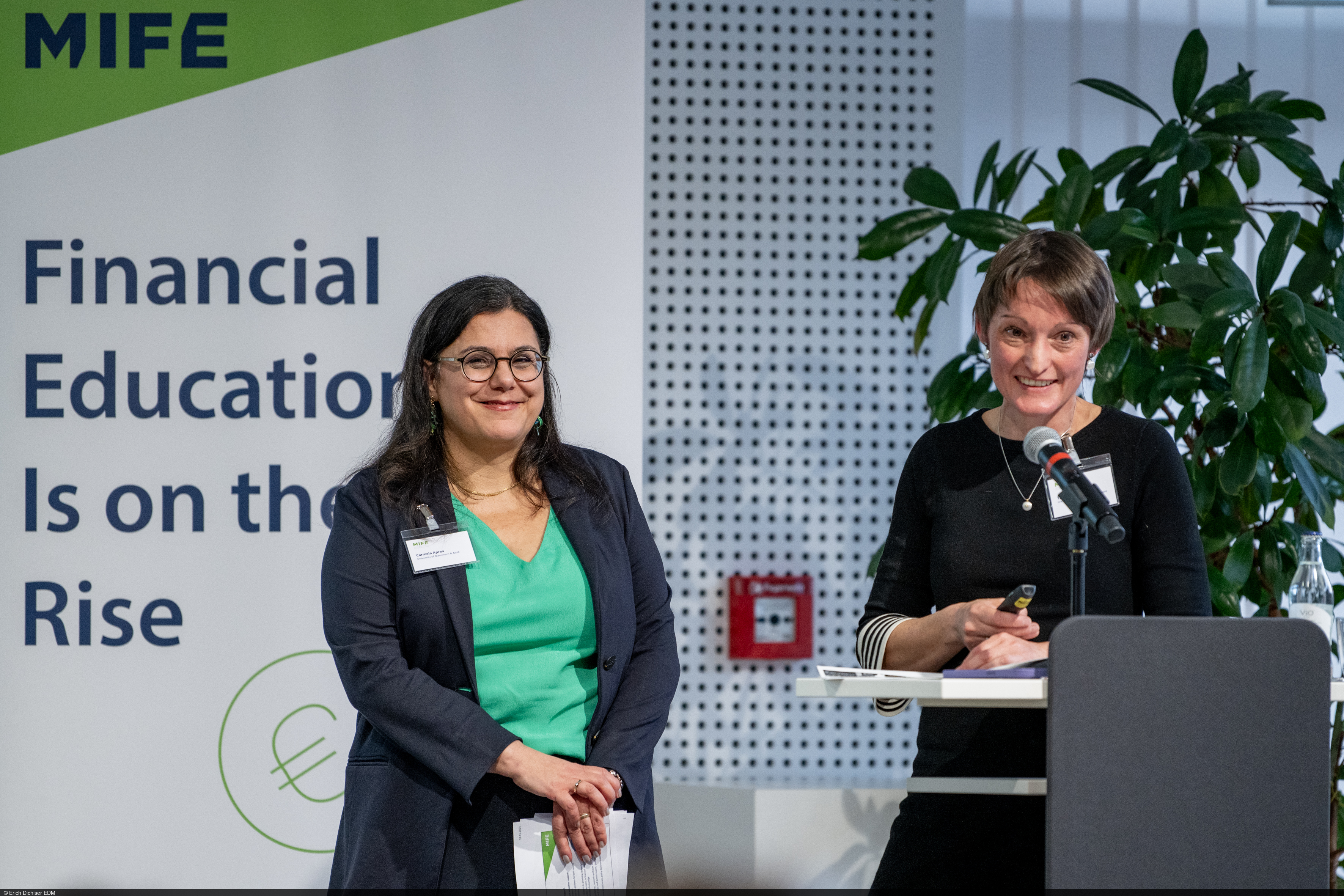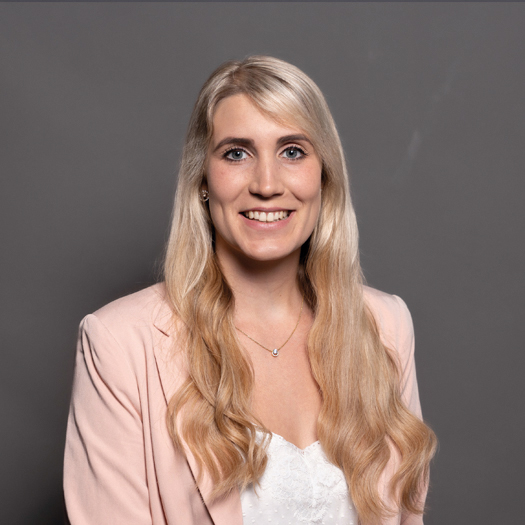MIFE Annual Conference 2024: Evaluation and Monitoring of Financial Education
ConferencesThis year’s MIFE annual conference took place at ZEW Mannheim on 18 November and focussed on the topic “Evaluation and Monitoring of Financial Education”. In a two-day workshop following the conference, young researchers had the opportunity to present their work and exchange insights and findings. More than 100 conference participants discussed recent scientific contributions on how to measure financial literacy, on the future of financial education in Germany and on the implementation of the German financial education strategy.
In their opening speech to the conference, Professor Carmela Aprea (University of Mannheim) and Professor Tabea Bucher-Koenen (ZEW and University of Mannheim), directors of the Mannheim Institute for Financial Education (MIFE) presented research projects currently running at the institute.
The first keynote speaker Professor Carly Urban (University of Montana, USA) stressed the importance of financial education at schools and its potential to promote a lasting improvement in the financial behaviour of young people. Based on data from the US, she illustrated the advantages of financial education integrated as a compulsory part in the school curriculum. According to Urban, particularly schoolchildren from low-income households benefit from compulsory financial education. For instance, participation in financial education offerings was associated with a long-term reduction in defaults, improvement in creditworthiness and increase in the use of affordable credit options. Topics for future research outlined by Urban include the involvement of parents in financial education programmes, adequate training of teachers and the use of online platforms and game-based learning methods.
Keynote speaker Carlo Di Chiacchio, PhD (INVALSI, Italy) addressed the achievements and challenges regarding financial education in Italy. According to Di Chiacchio, the efforts for integrating financial education in school curricula and developing a national strategy were sped up by Italy’s poor performance in the PISA study 2012. A committee was set up in 2017 to improve initiatives, coordinate programmes of action and evaluate the experience gained by different actors. Di Chiaccho also discussed methodological questions relating to the measurement of financial literacy and proposed using situational test methods and AI technology for analysis in addition to traditional measurement tools.
In the third keynote address, Andrea Grifoni (OECD, France) presented the OECD recommendations for a German financial education strategy. The strategy’s aim is to promote the financial well-being of adults and teenagers through evidence-based initiatives and better coordination of actions. The OECD recommendations are addressed to both public and private actors in Germany. Grifoni particularly emphasised the need to provide specific support for vulnerable population groups. Although an above-average level of financial literacy is observed in Germany, there are still deficits regarding the use of digital services. Grifoni stressed that better coordination between the federal and the state levels is required and that all relevant stakeholders need to be involved.
Andrea Grifoni (OECD), Vanessa Müden (German Federal Ministry of Finance), Alexander Renner (German Federal Ministry of Education and Research), Sebastian Swoboda (Federal Ministry of Finance of the Republic of Austria) and Manuel Wälti (Swiss National Bank) discussed the topic “Strategy and Quality Standards for Financial Education”. The panel was moderated by MIFE directors Carmela Aprea and Tabea Bucher-Koenen. Overall, the panellists rated the progress made so far on developing a financial education strategy in Germany positively. Müden and Renner also outlined how this strategy could be further developed and implemented and what could be the next steps in accompanying research. They emphasised that the experiences gained in the neighbouring countries Switzerland and Austria are examples of a successful integration of different stakeholders and an evidence-based approach to enhancing offerings.
At the close of the event the “Bundesbank Early Career Research Prize on Financial Literacy” was awarded – for the fourth time – by Dr. Paricia Staab (Deutsche Bundesbank). The two awards went to Lovisa Reiche (University of Oxford) for her research work “Beyond Groceries: Financial Confidence and the Gender Gap in Inflation Expectations” and to David Westerheide (Lund University) for his research work “Child Penalties in Personal Finances: Evidence from Bank Data“, co-authored with Arna Olafsson.
The annual conference was followed by the Early Career Workshop with twelve young researchers who presented and discussed their research contributions. In her keynote to the workshop Professor Carly Urban addressed the possible ways in which research projects can evolve and explained this using her research on the internationally observed decline in financial literacy as an example.





